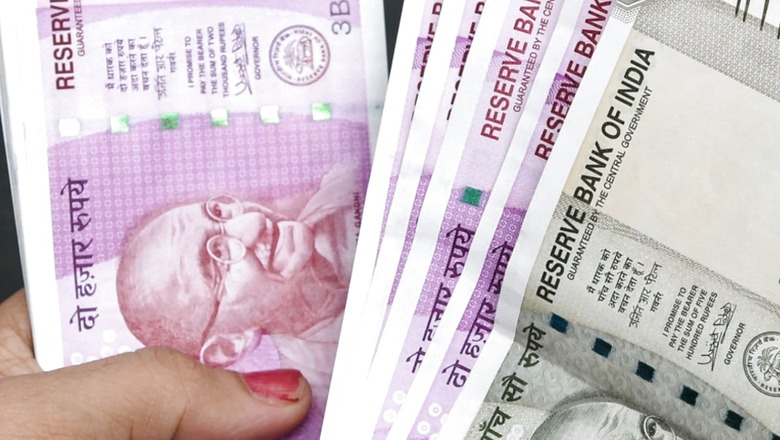
views
After soaring over 6 per cent in the last two months, retail inflation eased in July. The Consumer Price Index recorded at 5.59 per cent in July, according to the official data released by the ministry of statistics and programme implementation (MoSPI) on Thursday. This was the first time in three months that the CPI data has come below the Reserve Bank of India’s (RBI) upper margin of 6 per cent. Retail inflation climbed to 6.26 per cent in the month of June on the back of high fuel prices and rising vegetable prices. “Food inflation increased in June primarily due to an uptick in inflation in edible oils, pulses, eggs, milk and prepared meals and a pick-up in vegetable prices,” said Reserve Bank of India. In May, it was 6.30 per cent. The central bank earlier maintained retail inflation at 4 per cent with a margin of 2 per cent on either side for a five-year period ending March 2026.
The Consumer Food Price Index (CFPI) slipped to 3.96 per cent in July from 5.15 per cent in June, the data revealed. “Food price inflation has come down to 3.96 % in July, from 5.19% in June, and vegetable prices too have fallen quite a bit. Core inflation in July is reported at 6.00 per cent as against 6.20 per cent in June. So, there is, overall some moderation , but it is too early to say that the inflationary pressures are transient, and that it may remain subdued hereafter. However, it is a fact that it takes some pressure away from policy making at least for the time being. This number may have little or no impact on the trajectory of market yields,” said Joseph Thomas, head of research, Emkay Wealth Management.
“With this moderation in inflation, it is within the central bank’s comfort zone of 2-6%. With this monetary policy guidance metric in check, households and corporate borrowers alike will continue to benefit from the low interest rate and accommodative monetary policy stance for a sufficiently long period of time,” said Vivek Rathi, director research, Knight Frank India.
RBI Monetary Policy Committee (MPC) had kept the repo rate unchanged for the seventh time in a row in its August Monetary Policy. The repo rate remained unchanged at 4 per cent and the MPC maintained ‘accomodative’ stance. The central bank also pegged a CPI Inflation of 5.7 per cent for the entire fiscal FY22. “Taking into consideration all these factors, CPI inflation is now projected at 5.7 per cent during 2021-22: 5.9 per cent in Q2; 5.3 per cent in Q3; and 5.8 per cent in Q4 of 2021-22, with risks broadly balanced. CPI inflation for Q1:2022-23 is projected at 5.1 per cent,” the central bank mentioned. RBI said that input prices are rising across manufacturing and services sectors, but weak demand and efforts towards cost-cutting are tempering the pass-through to output prices.
Meanwhile, Industrial output for the month of June rose to 13.6 per cent as the country has been gradually opening up from the restrictions put in place to curb Covid-19 second wave. “Coming out of the COVID second wave, as the country gradually opens its economic activities and eases mobility curbs, we will see a reflection of both pent up activity and pandemic influenced tailwinds in some sectors. Albeit concerns of the impending third wave and delta variant virus will keep the market participants on a watchful mode, vaccination progress and developing herd immunity will be a comforting factor on the pandemic situation. In case of IIP index, besides the base period impact, growth of 13.6% in June 2021 is chiefly influenced by the consumer durables and capital goods segments. With adequate system wide liquidity and low interest costs, sustainable pick-up in consumer demand will be awaited as a key catalyst for broad based economic recovery,” said Vivek Rathi.
Read all the Latest News, Breaking News and Coronavirus News here.



















Comments
0 comment